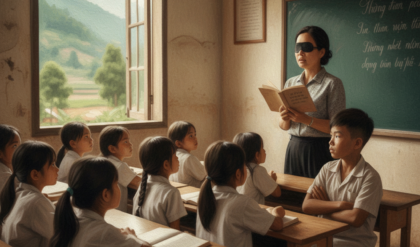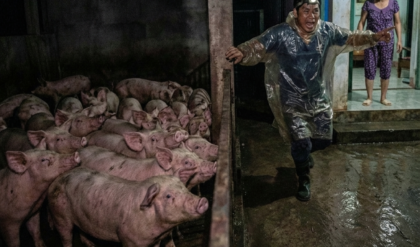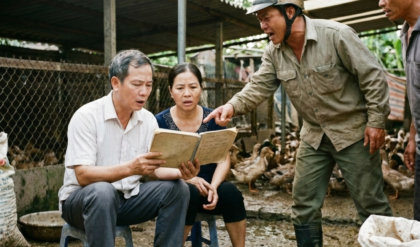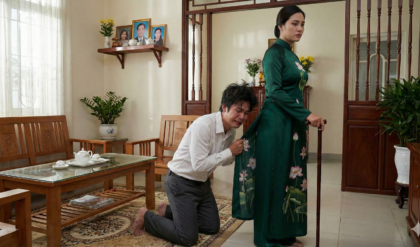“Catch the Hot Cup”
I didn’t even recognize her at first.
The grainy clip was everywhere—TikTok, local news, Facebook moms’ groups. A woman in a gray hoodie throws a steaming cup of coffee at a teenage cashier inside a MC’Mickey’s, yells “Catch the hot cup!” and bolts for the door.
The poor kid screams. Someone drops their fries. The camera pans just in time to catch her face.
And that’s when my stomach dropped.
It was Althea Johnson.
Two years ago, we’d worked the same morning shift at that exact MC’Mickey’s on Buena Vista Boulevard. She’d been the one who sang along to the old R&B station while refilling ketchup bottles. The one who brought her daughter, Lina, to work sometimes when childcare fell through. The one who used to call every customer “sweetheart,” even the rude ones.
And now, apparently, she was the “crazy woman” trending under #HotCupAttack.
The internet moved fast.
People called her a psycho, a menace, “one of those angry customers who can’t control themselves.”
MC’Mickey’s corporate put out a short statement about “employee safety” and “working with local law enforcement.” The police posted a mugshot from two years ago—unpaid parking tickets, I remembered—and said they were seeking public assistance to locate her.
I kept scrolling, half-hoping someone else would notice what I did.
No one did.
That gray hoodie? That was her old MC’Mickey’s uniform jacket.
That look in her eyes, right before she ran? That wasn’t rage. It was panic.
I couldn’t sleep that night. I kept hearing her voice from two years ago:
“Be careful with the hot cups, baby. They’re hotter than they should be.”
Back then, I thought she was just being protective. Turns out she’d been right.
One Year Earlier
It was the lunch rush when it happened.
Lina was six, maybe seven—tiny, with a pink backpack shaped like a strawberry. Althea had picked her up from school because her sitter canceled. “She’ll sit in the corner,” she promised. “She won’t bother nobody.”
I remember the sound before I saw it—the clatter of a cup, a sharp scream, and the smell of scalded milk.
A customer had knocked over his coffee. One of those new “extra hot” blends MC’Mickey’s was pushing that month. It splashed across the counter and onto Lina’s face before anyone could move.
She didn’t even cry at first, just froze, then let out a sound I still hear in my sleep.
We all scrambled—ice, water, napkins—but it was too late. Her cheek blistered instantly.
Althea screamed for an ambulance while the manager shouted for everyone to “stay calm” and “keep the customers happy.”
Corporate sent a lawyer the next day.
They paid the hospital bill, then fired Althea for “bringing a minor into a restricted work area.”
She tried to fight it. Wrote letters, filed complaints, even called the local news. Nobody cared.
MC’Mickey’s said she was negligent. That she’d broken company policy. Case closed.
The last time I saw her, she hugged me and said,
“They serve the same coffee every day, and it’s still boiling. Somebody’s gonna get burned again.”
Then she left town.
Back to Now
A week after the viral clip, a reporter showed up at the store asking questions.
Our manager said “no comment” and told us not to talk to the media. But I couldn’t shake it.
So I started digging.
The video everyone shared cut off right after she threw the coffee.
But the full CCTV footage—well, that told a different story.
I shouldn’t have watched it, but one of the new night managers owed me a favor.
In the original recording, Althea doesn’t aim for the cashier’s face. She throws the cup at the counter.
The lid pops, coffee splashes—but not on the kid. The kid flinches but isn’t burned.
And right before she yells, “Catch the hot cup!” she places something small on the counter.
A flash drive.
The police report doesn’t mention that.
It took me three days to find her.
She was living in a motel near the train tracks, the kind of place where no one asks for ID if you pay cash.
Lina was there too, older now—scarred but smiling, coloring in a notebook while her mom folded laundry.
When she saw me, Althea froze. Then she sighed.
“I figured someone from MC’Mickey’s would show up sooner or later,” she said.
I told her I wasn’t there to report her. I just wanted to understand.
So she told me everything.
The flash drive she left behind contained the internal temperature logs from the coffee machines—leaked by a friend still working there. The readings showed that MC’Mickey’s had disabled the safety limiters that capped coffee temperatures. Too many customer complaints about “lukewarm drinks,” they said.
They’d known the coffee was dangerously hot for years.
“Every cup could hurt someone like Lina,” she said quietly.
“But no one cared when I spoke politely. I thought maybe they’d care if I screamed.”
Her voice trembled. “I didn’t want to hurt that kid. I just… needed people to see.”
I didn’t know what to say.
She looked tired, older than her years. Lina brought her a cup of instant ramen and whispered, “Mom, eat.”
When Althea smiled, her face softened, but the sadness stayed.
I asked if she’d seen the news coverage.
She shook her head. “Doesn’t matter. They’ll call me crazy. They always do.”
I left that night with her permission to copy the flash drive.
Part of me wanted to hand it to the police, but I knew better. They’d bury it. Or worse, twist it against her.
So I sent it to someone else.
The Upload
There’s this small independent reporter on YouTube—Marianne Chen—who covers local injustice stories.
I emailed her the footage, the logs, everything, and waited.
Three days later, the story dropped:
“MC’Mickey’s Scalding Scandal: Woman Called ‘Crazy’ Was Trying to Expose Dangerous Practices.”
It went viral.
Not like the first video—this time, people listened.
The documents proved that MC’Mickey’s had ignored multiple employee safety reports.
They’d been warned by a supplier that their heating units exceeded legal temperature limits.
They’d quietly settled three previous burn claims.
The corporate spokesperson called it “an unfortunate oversight.”
But suddenly, the same commenters who’d mocked Althea were posting apologies.
Someone started a GoFundMe for her and Lina. Within 48 hours, it hit $60,000.
The Aftermath
A month later, MC’Mickey’s replaced every coffee machine nationwide.
They launched a new campaign about “community trust and safety.” The commercials had smiling employees pouring coffee “at the perfect temperature.” No mention of Althea, of course.
I visited her again. She was packing—moving to another town where no one knew her face.
She thanked me, but I didn’t deserve it.
“I just did what you tried to do,” I said. “I made people listen.”
She laughed softly. “Took both of us, I guess.”
Lina hugged my leg before I left. “My mom says you’re brave,” she whispered.
I told her, “Your mom’s the brave one.”
Epilogue
Last week, I stopped by MC’Mickey’s on my way to work.
New staff, new machines, same cheap coffee.
But as I waited for my order, I noticed something near the counter—
a small metal plaque mounted under the register.
It read:
“In memory of those who spoke up when no one listened.”
– Buena Vista MC’Mickey’s, 2024
The cashier called out my order.
“One medium coffee, extra hot!”
For a second, I almost laughed. Then I caught myself.
I asked him to make it warm instead.
[Author’s Note – Posted to r/TrueOffMyChest]
I don’t know if this story will make anyone see things differently.
Maybe you’ll just scroll past like I used to.
But I keep thinking about how fast we judge people online—how easily we decide who’s “crazy,” who’s “bad,” who’s “dangerous.”
All Althea did was throw a cup of water and scream for attention in a world that ignored her pain.
And somehow, that made her the villain.
So next time you see a clip online, remember:
There’s always something missing between the frames.





